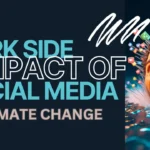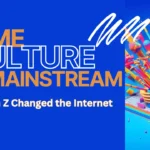Introduction to Tackling Mental health
Tackling Mental health has emerged as one of the most pressing challenges of our time, particularly for Gen Z and the middle-aged population in India. In a world where the stigma around mental well-being still prevails, the impact of technological advancements, societal expectations, and post-pandemic realities have escalated this silent crisis.
Understanding the Gen Z Mindset
Gen Z, often referred to as the “digital natives,” is a generation growing up in an era of unprecedented connectivity. While technology provides opportunities, it also brings challenges:
- Social Media Pressure: Platforms like Instagram and Snapchat, while offering entertainment, often lead to feelings of inadequacy, anxiety, and depression.
- Academic and Career Anxiety: With societal expectations and stiff competition, young people are under immense stress to excel academically and professionally.
- Isolation Despite Connectivity: Paradoxically, constant virtual connectivity has led to reduced face-to-face interactions, increasing feelings of loneliness.
The Middle-Aged Struggle
The middle-aged demographic faces its own mental health hurdles, including:
- Work-Life Imbalance: Rapid urbanization and corporate culture have blurred the lines between personal and professional life.
- Financial Pressure: Rising costs of living, education, and healthcare add to the stress.
- Generational Burden: Many middle-aged Indians find themselves sandwiched between caring for aging parents and raising children.
The Pandemic’s Role
The COVID-19 pandemic exacerbated the crisis:
- Lockdowns led to isolation and increased cases of anxiety and depression.
- Financial instability and job losses hit families hard, leading to mental strain.
- Students suffered from disrupted education and social lives.
Startling Facts and Figures
- A 2021 WHO report stated that 15% of Indian adults have experienced some form of mental disorder.
- Gen Z is twice as likely to report poor mental health compared to older generations.
- Over 75% of suicides in India occur among individuals below the age of 50, with a significant proportion being students and professionals.
Breaking the Stigma
Despite these alarming trends, mental health conversations in India remain shrouded in stigma. Families often dismiss issues as phases, while workplaces rarely prioritize mental health policies.
Key Areas of Concern:
- Lack of Resources: India has less than one mental health professional per 100,000 people.
- Awareness Gaps: Many Indians lack awareness about mental health, viewing therapy as taboo.
- Financial Constraints: Therapy and counseling remain unaffordable for many.
How Gen Z is Paving the Way for Change
Amid the gloom, Gen Z is emerging as a beacon of hope:
- Breaking Stereotypes: Many young Indians openly discuss mental health on platforms like Twitter, Instagram, and LinkedIn.
- Seeking Help: Therapy apps like BetterHelp and Wysa are gaining popularity among younger users.
- Community Building: Peer support groups and online forums are helping normalize discussions around mental health.
Steps Toward a Healthier Future – Tackling Mental health
To combat this crisis, a collective effort is required:
- Educational Reforms: Mental health awareness must become a part of school curriculums.
- Corporate Responsibility: Workplaces should offer mental health benefits and foster supportive environments.
- Affordable Care: Government initiatives like the National Mental Health Program must expand to ensure affordable and accessible care.
- Digital Tools: Apps and AI-driven solutions can provide instant support to those in need.
Conclusion: Bridging Generations for Mental Wellness – Tackling Mental health
The silent crisis of mental health in India demands urgent attention. By addressing the unique challenges faced by both Gen Z and the middle-aged, and fostering an environment of empathy and support, India can pave the way for a mentally resilient society.
Mental health is not just an individual battle; it is a societal responsibility. Together, we can break the silence and bring healing and hope to millions.












